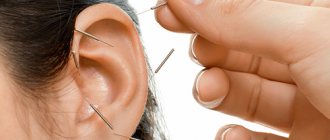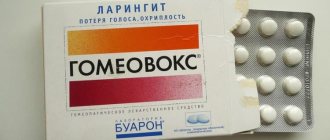2162
Author of the article
Evgeniy Nikolaevich Konoplev
Reading time: 4 minutes
AA
Malignant prostate tumors appear due to pathological division of gland cells. This type of cancer grows very slowly and is usually well treated. In rare cases, the tumor grows actively, filling the entire organ and metastasizing to other systems of the body. Whatever the speed of development of the disease, treatment is based on the use of antihormonal drugs, including Flutamide. The international nonproprietary name (INN) of the drug is Flutamide (Latin name - Flutamidum).
Pharmacological action of Flutamide
The active ingredient of the drug is flutamide.
The excipients included in the capsules are magnesium stearate, silica gel, sodium lauryl sulfate, polyvinylpyrrolidone, microcrystalline cellulose, potato starch, lactose. Flutamide is a non-steroidal androgenic drug that has antitumor activity. When used, the medicine prevents the interaction of androgens with their cellular receptors.
The mechanism of action of Flutamide according to the instructions is due to blunting the uptake of androgen and its binding in the nuclei of target tissue cells.
The drug does not have antigestagenic, progestogenic, antiestrogenic or estrogenic activity. The target organs for the therapeutic effects of flutamide are the seminal vesicles and the prostate gland.
When taken orally, the active substance of the drug is completely and quickly absorbed from the gastrointestinal tract. The drug reaches its maximum concentration in blood plasma 2 hours after entering the body. Metabolized in the liver to form an active metabolite. Binds well to blood proteins. Excreted through the kidneys. The period of complete elimination of the metabolite is about 16 hours.
Pharmacological properties
Hormones play the role of a kind of transmitter that controls the functioning of all organs and systems, as well as the process of cell division. “Flutamide” has a hormone-like property, i.e. controls the functioning of hormones.
The formation of cancer cells in the prostate, their growth and division is impossible without testosterone, the male sex hormone. In the male body, it is produced by the ovaries and adrenal glands. Thus, prostate cancer is a hormone-dependent disease.
Flutamide can not only slow down tumor growth, but also stop it completely by blocking the effect of testosterone on the prostate. The active components of the drug do not allow androgens to affect the prostate gland. This is where the name of the drug came from - antiandrogen.
special instructions
In case of complex treatment, Flutamide should be taken three days before starting the use of a GnRH agonist to reduce the likelihood of side effects. For liver failure, treatment is indicated only if this is the only method that solves the problem. Laboratory testing of liver function should be performed. There was some enlargement of the liver when taking Flutamide, but after discontinuation the size became normal. In case of undesirable symptoms, discontinuation of the drug is recommended.
Appropriate laboratory tests to assess liver function should be performed in each patient once a month for the first 4 months, and then periodically or when the first symptoms of impaired liver function develop (itching, dark urine, persistent loss of appetite, jaundice, tension in the right hypochondrium). For men undergoing long-term treatment in the absence of chemical or surgical castration, regular sperm testing is necessary to maintain fertility.
No studies have been conducted on the subject of driving a vehicle and operating machinery. But if symptoms such as dizziness or headache occur, then it is better not to take risks and not get behind the wheel.
Interactions with other medicinal drugs and other types of interactions
There was no interaction between flutamide and leuprolide. Since flutamide and LHRH agonists develop simultaneously, the potential deleterious effect of both drugs may be considered.
In patients undergoing treatment with warfarin, an increase in prothrombin hour was observed after flutamide administration. Therefore, it is necessary to select the optimal dose of the anticoagulant.
When flutamide and theophylline are heavily stagnated, the concentration of theophylline in the blood plasma may increase.
It is necessary to avoid one-hour ingestion of Flutamide and potentially hepatotoxic drugs.
With one-hour infusion there is a clear possibility of interaction with paracetamol and opioid analgesics.
Flutamide may enhance the metabolism of corticosteroids.
Before the hour of celebration, you should not drink alcohol.
Residuals of androgen deprivation therapy may prolong the QT interval, immediately taking Flutamide with medications that prolong the QT interval, or medications that will cause pain. substances, such as class IA (for example, quinidine, disopyramide) and class III (for example, amiodarone , sotalol, dofetilide, ibutilide) antiarrhythmic drugs, methadone, moxifloxacin, antipsychotics, etc., may be carefully assessed.
Analogs
Antiandrogens are a group of drugs that have the property of suppressing the excessive production of progesterone, which causes significant disorders in the patient’s health. The following non-steroidal drugs are similar in properties and composition to Flutamide:
- Cyproterone is the most common drug of the progestogen group with antigonadotropic activity.
- "Spironolactone" ("Veroshpiron"). The second most popular drug, replaced by Flutamide, the principles of action are quite similar, rather, even indistinguishable.
Before starting to take any drug in this group, you must make sure that the source of the disease is in no way related to pregnancy or tumor. Careful preparation is required for the approach to the treatment of hyperandrogenism, also taking into account contraindications and the individual characteristics of each patient
When visiting a doctor, it is important to describe in detail the symptoms and manifestations of the disease, name existing chronic diseases, especially if they are related to liver function, only in this way will the doctor be able to choose conservative treatment in combination with Flutamide.
When is Flutamide prescribed to women?
As you can see, the drug is primarily intended for the treatment of male diseases. Nevertheless, doctors often prescribe Flutamide tablets to their patients. Instructions for use for women indicate that the medicine really helps in some situations. After all, a woman’s body also contains male sex hormones, and an increase in their level leads to serious disruptions in the body’s functioning. In particular, patients with hormonal imbalances complain of the appearance of acne, changes in the structure and properties of the skin (it becomes oilier, the pores expand), and excess hair growth on the body and face.
Flutamide tablets help with mild to moderate acne. Indications for use include hirsutism (appearance of hair on the face, chest and back). For polycystic ovary syndrome, the drug helps restore the normal menstrual cycle. It is worth remembering that the medicine should never be taken during pregnancy (therapy must be completed at least three months before fertilization).
Indications for use
The effectiveness of treatment brings a complex effect on the process of lowering the level of active hormones. For what purpose is Flutamide used? Instructions for use show a decrease, and subsequently inhibition, of the androgenization process.
Due to the increased production of androgens, the activity of the 5-α- enzyme, which is involved in skin reproduction and contributes to the sensitivity of its receptors to these hormones, increases. Thus, the development of idiopathic hirsutism begins, which requires treatment.
Until recently, it was prescribed for the treatment of prostate hyperplasia in men, but not so long ago its positive effect was revealed, aimed at the successful treatment of certain female diseases. For hirsutism and alopecia, “Flutamide” for women, when taken daily for three months, quite effectively reduces the increased level of male hormone in the blood, and these diseases lose their severity.
Side effects with monotherapy
Despite the fact that the drug is well tolerated by the human body, in some cases complications may still occur during treatment. You should familiarize yourself with the list of known medical side effects before starting to take the pills:
- Most often, gynecomastia develops while taking it. Patients complain of breast tenderness, which is sometimes accompanied by galactorrhea (unauthorized leakage of milk not related to feeding the baby).
- During therapy, digestive disorders are possible, which is expressed by nausea, increased appetite or anorexia, heartburn, constipation and bloating.
- The medicine provokes an increase in transaminase activity. Occasionally, therapy is accompanied by the development of hepatitis and cholecystic jaundice, hepatic encephalopathy. In the most severe cases, taking the drug can lead to the appearance of foci of necrosis in the liver.
- Some patients experience mental health problems, including anxiety and depression. You may have problems sleeping.
- The list of side effects includes dizziness and blurred vision.
- The drug may increase the body's susceptibility to infections (there are known cases of patients developing herpes zoster).
- Occasionally, during treatment, weakness, pain in the sternum, fever, and severe thirst are observed.
- The possibility of allergic reactions, including increased skin sensitivity to light, cannot be ruled out.
- In men, sometimes there is a disturbance in the processes of sperm formation and a decrease in libido.
- Occasionally, patients complain of shortness of breath and severe cough.
In most cases, the intensity of adverse reactions can be reduced by adjusting the dose of the drug.
Features of good stagnation
In combination therapy with LHRH agonists, Flutamide therapy should be started at least 3 days before the administration of LHRH agonists, which reduces the severity of inflammatory hyperemia, but not f at times parallel to the beginning of therapy.
The treatment is carried out under the supervision of a doctor.
In case of liver function disorders, flutamide may be used only after a thorough assessment of the global cortex and risks.
Checking the function of the liver is carried out before harvesting. Treatment with the drug does not cause illness with transaminase levels in the blood, which are 2-3 times higher than the upper limit of the norm.
Testing of liver function was carried out throughout the entire period of treatment with the drug, especially in patients who did not undergo orchiectomy, as side reactions such as cholestatic hepatitis, liver necrosis were identified Inki, changes in the level of transaminases and hepatic encephalopathy. Regular laboratory testing of the traces is carried out throughout the first 4 months of bathing and periodically thereafter, and at the first symptoms/signs of liver dysfunction (itching, dark color of the cut, persistence during the day). petitis, tingling, mild pain in the right upper quadrant of the abdomen or underlying weakness).
In case of laboratory confirmation of impaired liver function or hepatitis in the presence of biopsy-confirmed metastases in the liver, treatment with the drug should be administered if the patient continues to develop hepatitis or that the level of transaminases in the blood serum exceeded 2–3 times the upper limit of the norm, usually in the presence of clinical symptoms. Damage to liver function may be reversed after treatment with Flutamide. However, there is evidence of fatal episodes as a result of severe liver failure caused by flutamide ingestion.
When taking flutamide, the QT interval may be prolonged.
The physician is responsible for assessing the risk factors, including the potential for torsades de pointes, before administering Flutamide to patients with a history of QT suppression and whether there are any risk factors for QT suppression in patients who are likely to be affected. no medicinal properties that may cause chewing QT interval.
The drug should only be given to people. During therapy, it is necessary to use reliable methods of contraception.
Patients with dysfunction may rarely need to be monitored closely during flutamide therapy. Patients should be informed that flutamide and medications indicated for medical castration must be kept from the patient and cannot be taken or changed doses without prior notice. o consultation with a doctor.
In cases of cyanosis, it is necessary to check the patient for the presence of methemoglobinemia, which can develop with an overdose.
In patients who have not undergone an orchiectomy procedure, it is necessary to periodically measure sperm count during treatment with the drug. Shards treated with flutamide are similar to testosterone and estradiol in the blood plasma, and may cause tissue damage in the body, so the drug must be administered with caution to patients with angina pectoris or with our hearts being sick. Flutamide may inflame the tenderness or swelling of the glomerular tendon in patients with a tendency to develop these symptoms. In addition, an increase in the level of estradiol may promote the risk of thromboembolism.
Oligospermia may be prevented when taking Flutamide intermittently. It is always advisable to regularly carry out a semen analysis.
Flutamide may be able to fix the problem.
Flutamide should contain less than 1 mmol (23 mg)/dose sodium, so it is practically sodium-free.
Side effects
Side effects during treatment with Flutamide include:
- Nausea;
- Vomiting;
- Change in appetite;
- Liver damage;
- Lack of sleep;
- Increased fatigue.
Gynecomastia (breast enlargement) with galactorrhea (milk secretion) often develops. The changes are reversible.
In rare cases, the following are noted:
- Decreased sexual desire;
- Constipation;
- Stomach ache;
- Edema;
- Bruises on the body;
- Shingles;
- Lupus-like syndrome;
- Itching;
- Headache;
- Dizziness;
- Weakness;
- Deterioration of vision;
- Thirst;
- Chest pain;
- Anxiety.
With long-term treatment, sperm maturation may be suppressed.
Overdose
In experiments on animals, flutamide caused hypoactivity, piloerection, increased frequency of breathing, increased ataxia and/or lacrimation, anorexia, sedation, vomiting and methemoglobinemia.
Clinical data indicate that taking flutamide in an additional dose of up to 1500 mg over a period of 36 days does not cause serious side effects. Sometimes gynecomastia, engorgement of the mammary ducts and imminent changes in the levels of liver transaminases are to blame. A single dose of flutamide (up to 5 g) does not cause symptoms of overdose and does not pose a threat to life.
Symptoms of overdose, which would threaten a person’s life, are unknown.
If the level of flutamide binding to blood plasma proteins is high, it is not possible to initiate further dialysis. As with the treatment of overdose of any medicinal product, it is important to ensure that the patient can take several drugs simultaneously. It is recommended to carry out extraterrestrial visits to control and support the vital parameters of the body. You may need to rinse the tube.
Indications
The drug is used in complex treatment with other medications or complements surgery, as it is not able to eliminate or reduce a malignant tumor or reduce its size on its own.
The medicine is prescribed for prostate cancer in the following cases:
- before and after surgical castration;
- in the first stages of therapeutic measures aimed at getting rid of pathology, together with GnRH agonists;
- in case of intolerance to other methods of hormonal treatment.
The medication may also be prescribed as a component of additional therapeutic effects.
Pharmacological authorities
Pharmacodynamics.
Flutamide is an antiandrogenic drug with a non-steroidal structure. Flutamide and its metabolites do not have agonistic or antagonistic effects on glucocorticoid, estrogen, progestin and mineralocorticoid receptors.
Flutamide blocks androgen receptors of target clitins in the anterior ventricle, hypothalamus and pituitary gland and inhibits the biological effects of endogenous androgens. Prote flutamide does not suppress the androgen-mediated secretion of gonadotropin-releasing hormone (GTRH) by the hypothalamus and does not affect the sensitivity of the pituitary gland to GTRG. This results in an increase in gonadotropic hormones (luteinizing and follicle-stimulating), which results in stimulation of testosterone hyperproduction.
Flutamide and its metabolites inhibit the interaction of dihydrotestosterone with nuclear androgen receptors. Blockade of receptors can also occur on the cell membrane and cell cytoplasm. The main metabolite is 2-hydroxyflutamide. Its affinity with androgen receptors in 25 different types of tissue is different from that of flutamide, which makes it possible to identify its active form of flutamide.
The combination of flutamide with chemical or surgical castration leads to the appearance of testicular and adrenal effects of androgens.
Pharmacokinetics.
After oral administration, Flutamide is well adsorbed in the gut-intestinal tract. The maximum concentration in blood plasma is reached within 2 years. Following the distribution of tritium-labeled flutamide, it is rapidly metabolized to its biologically active form, 2-hydroxyflutamide, and to other metabolites. The withdrawal period for the drug becomes 5 ̶
6 years There are approximately 10 metabolites of flutamide. More than 90% of flutamide and 2-hydroxyflutamide are bound to blood plasma proteins. It is important to eliminate nirkami. Approximately 4% of the administered dose is excreted in feces.
Indications and rules of admission
This medication is not the main drug in the treatment of cancer, because it is not able to reduce the size of the tumor. That is why Flutamide is prescribed only as an addition to other drugs or after surgery. The tablets should be used if the disease is too advanced or surgery is impossible.
According to the instructions for use of Flutamide, the course of treatment with the drug can be either short or long. It may be prescribed for several weeks to ease worsening signs of the disease. Symptoms usually become more pronounced when new antihormonal medications are used.
As a rule, the drug is prescribed at a dosage of 250 mg three times a day. The interval between doses should be 8 hours. You cannot change the dose on your own. The specialist selects it in accordance with the individual picture of the disease so that the concentration of the drug in the blood is constant.
Basic rules for taking pills:
- If you miss a dose, do not take several capsules at once. You should wait until your next dose and take the usual amount of the drug. Nothing will change if you break the regime once. The consequences of an overdose can be much worse.
- The tablets are stored in the original packaging in a cool, dry place, but not in the refrigerator. Avoid exposure to direct ultraviolet rays and excessive heat.
- The place where the packaging is stored must be protected from children.
- It is recommended to buy the drug with a supply so that on weekends or holidays you do not miss a dose because the tablets have run out.
- Flutamide can be taken both before and after meals. The drug must be taken with plenty of water.
Reception features
For the drug "Flutamide", the instructions for use indicate the achievement of maximum concentration in the blood 2-3 hours after administration, which indicates rapid absorption of the drug by the intestines. The half-life is about 5-6 hours in the urine, and a little later, after 8-9 hours, the remainder is excreted. The quality of excretion directly depends on the patient’s age and general health.
Diseases with symptoms of androgenization in women require an individual approach to treatment. Determining the degree, severity, localization of problem areas and other factors influences the prescription of medications; Flutamide is usually prescribed as a complex. Instructions for use indicate taking one capsule three times a day, observing equal intervals of time. The daily dose is 750 mg, the minimum treatment period is six weeks.
Treatment of symptoms caused by high levels of androgens should be combined with some other antiandrogenic drugs. Dexamethasone, Prednisolone and other corticosteroids are often prescribed in combination. Calming procedures are also used to support the upset psyche of patients with obvious symptoms caused by a riot of hormones.
Even in the absence of previously disturbing symptoms, it is not recommended to discontinue the drug on your own; this requires consultation with an endocrinologist who monitors the development of the disease. Strict adherence to all prescription instructions is required. If for some reason you missed taking a pill, you should not take two pills the next time, but simply continue taking it as usual. Skipping the drug is not as harmful as taking a double dose once.
Information about the composition and release form of the medicine
This drug is produced in the form of small round biconvex tablets of pale yellow color. They are placed in small dark glass jars (20, 84 or 100 pieces each).
What does Flutamide contain? The instructions say that the main active ingredient is flutamide. Each tablet contains 250 mg of this substance. Of course, auxiliary ingredients are used in production, including magnesium stearate, microcrystalline cellulose, lactose monohydrate, colloidal silicon dioxide, corn starch and sodium lauryl sulfate.
Use in the treatment of prostate diseases
Indications for use
Taking into account the rather specific effect of the medication, it is worth understanding in advance why Flutamide is taken. The drug is prescribed mainly for:
The drug is prescribed mainly for:
- treatment of prostate cancer in the early stages (if adjustment of testosterone levels is necessary);
- as an auxiliary drug in the treatment of certain forms of prostatitis (for antiandrogenic action);
- in complex therapy with gonadotropin-releasing hormone antagonists.
Flutamide can also be used during castration (surgical).
Flutamide is used to treat advanced prostate cancer as monotherapy
That's why it is prescribed:
- or in combination with other drugs;
- or during surgery.
Another area of use of Flutamide is palliative care. The drug is prescribed to correct the level of androgens in the event that neither medication nor surgical methods have completely overcome the prostate tumor. When used palliatively, Flutamide slows down the development of tumors and significantly alleviates the patient’s condition.
"Flutamide" - instructions for use in the treatment of prostate cancer
Recommendations for the use of Flutamide:
- The drug is taken 1 tablet 3 times a day, with meals (before, during or immediately after). For more effective absorption, each tablet should be taken with plenty of water.
- It is advisable to take the tablets strictly at the same time, maintaining an interval of 8 hours between doses. This helps to increase the effectiveness of Flutamide.
- If for one reason or another you miss one dose, you should not take a double dose after 8 hours. As a rule, a one-time deviation from the schedule does not lead to serious consequences, but an overdose is almost guaranteed to cause harm, causing a deterioration in the condition.
For oral use.
The drug Flutamide is used as monotherapy or in combination with LHRH, one tablet (250 mg) 3 times a day with an eight-hour interval. Therapy using Flutamide can be either short-term or long-term. A short course of the drug (up to 3-4 weeks) is prescribed mainly to relieve symptoms when the patient’s condition worsens.
Contraindications, overdose, possible side effects
In a situation where a specialist has prescribed Flutamide for the treatment of prostate tumors, the instructions recommend paying attention to contraindications for use:
- individual intolerance to components;
- allergic reactions;
- diseases of the cardiovascular system;
- diseases of the digestive system (peptic ulcer, gastritis);
- pathologies of the thyroid gland;
- liver failure;
- kidney diseases.
If the recommendation on the frequency of taking the drug is not followed, an overdose may occur. Main symptoms:
nausea and vomiting;
Common: diarrhea, nausea, vomiting, increased appetite
- dizziness to the point of loss of consciousness;
- tremor of the limbs;
- sudden changes in temperature;
- tachycardia;
- pallor;
- sweating
The list of side effects of the drug is extensive. As a rule, they occur against the background of violations of doctor’s recommendations, uncontrolled combination of Flutamide with other medications and poor tolerance of the drug itself by the body. The most common are:
- decreased libido, inhibition of spermatogenesis;
- chest pain (similar to pain in diseases of the cardiovascular system);
- nausea, vomiting, eating disorder;
- skin manifestations - itching, redness, rashes;
- headaches accompanied by a sharp decrease in performance;
- anxiety;
- sleep disorders, etc.
Fatigue is common.
If any of these symptoms occur, it is advisable to consult the doctor who prescribed the drug for advice.
Flutamide and other drugs
If Flutamide is used in monotherapy, it usually demonstrates good absorption. When combined with other drugs, the following effects are possible:
- when taken together with anticoagulants – increasing the effectiveness of their action;
- when taken simultaneously with "Theophylline" in the blood - an increase in the concentration of the latter in plasma;
- when taken together with hepatotoxic medications, analgesics or Paracetamol, there is an increased likelihood of side effects.
Instructions
This drug is prescribed 1 tablet (250 mg) three times a day. The course of treatment should be long-term. During therapy, it is necessary to regularly examine liver functions.
Flutamide should be prescribed with extreme caution to patients suffering from cardiovascular diseases.
According to the instructions, Flutamide can be used for differential diagnosis of hypogonadism in men. In this case, the drug is prescribed at the rate of 10 mg per kg of the patient’s body weight per day. It is taken three times a day for three days. Then a study of the concentration of gonadotropins in the blood serum is carried out.
Side effects of Flutamide
According to reviews, Flutamide is in most cases well tolerated by patients.
Individually, adverse reactions may occur in the form of pain in the mammary glands and gynecomastia (breast enlargement in men), fluid retention, and an increase in the concentration of methemoglobin (a hemoglobin derivative that is not able to carry oxygen).
Rarely, thromboembolism (blockage of blood vessels with blood clots), dysfunction of the gastrointestinal tract, kidneys or liver, insomnia, headaches, lupus-like syndrome (appearance of red-brown tubercles of pasty consistency on the skin, similar to skin lesions), and subcutaneous hemorrhages are possible.
Showing
Treatment of locally advanced or metastatic prostate cancer, either as monotherapy (with or without orchidectomy) or in combination with luteinizing hormone releasing hormone (LHRH) agonists, in patients not previously treated with it who do not respond to treatment or who have developed resistance to hormonal therapy or intolerance, by achieving maximum androgen blockade.
Combination therapy is one of the ways to treat locally encircled prostate cancer B2 – C2 (T2b – T4), to change the volume of swelling, enhance control over swelling and increase the period between acute illnesses.
By-effect
The drug has side effects when used alone:
- immunity: lupus-like disease;
- psyche: loss of sleep, depression, feeling of panic;
- nervous system: dizziness;
- organs of vision: “fog”, “veil” before the eyes;
- respiratory tract: shortness of breath, cough;
- gastrointestinal tract: diarrhea, feeling of nausea, vomiting, hunger, less often - constipation, stomach pain, hepatitis, heartburn, anorexia, unquenchable thirst;
- skin: itching, increased photosensitivity;
- reproduction: gynecomastia, engorgement of the mammary glands, galactorrhea, rarely - decreased sexual desire, deterioration of seminal fluid;
- other side effects: swelling, fatigue, migraine, general malaise, fever, discomfort in the sternum.
Side effects during complex therapy:
- circulatory system: anemia, leukopenia, swelling, thrombocytopenia;
- endocrine system: hyperglycemia, exacerbation of diabetes mellitus;
- psyche: depression, feeling of panic;
- Central nervous system: neurosis, nervousness, sleepiness, confusion of thoughts;
- respiratory tract: interstitial lung disease;
- Gastrointestinal tract: diarrhea, feeling of nausea, vomiting, abdominal pain, jaundice, anorexia. hepatic encephalopathy; liver necrosis; severe liver pathologies leading to death;
- skeleton: arthralgia, myalgia;
- genitourinary system: disturbances in urine output, impotence, decreased sexual desire.
Mitoxantrone
“Mitoxantrone” is a representative of antitumor and immunomodulatory agents, in particular anthracyclines.
Indications:
Indications include malignant disease of the mammary glands, liver, lymphoma, leukemia and prostate cancer that is not sensitive to hormones. The mechanism of action of the drug is based on blocking the processes of reproduction and growth of cancer cells.
Contraindications:
Among the contraindications, attention should be paid to the pronounced inhibition of hematopoietic function and individual intolerance to the active substance of the drug. The medicine is also prohibited during pregnancy and lactation
Dosage:
The dosage and duration of the therapeutic course are determined solely by the doctor based on the results of laboratory and instrumental examinations.
Side effects:
In addition, side effects may occur, such as leukopenia, thrombocytopenia, anemia, decreased cardiac ejection fraction, changes in ECG, cardiac arrhythmias and cardiac failure (with long-term treatment).
Drowsiness, confusion, agitation, rhinitis, nausea, vomiting, diarrhea or constipation, pain in the stomach, inflammation of the mucous membranes of organs, changes in taste, baldness and changes in the color of urine are also observed.
Finally, it should be noted that the effectiveness of treatment depends on the stage at which the malignant process was detected. Using proven treatment approaches, in particular, surgery, radiation, hormonal and chemotherapy pills for cancer, the chances of blocking and even regression of cancer pathology are significantly increased. Therefore, do not delay visiting your doctor if any symptoms appear.
Afterword!
All of the above information about these drugs was provided for informational purposes only! Independent use of the above-described remedies without prescription and consultation with a doctor is strictly prohibited!
orake.info
Methods of use of Flutamide and dosage
Flutamide tablets are intended for oral use.
Prescribe 1 tablet 3 times a day with an interval of 8 hours. Once the desired therapeutic effect is achieved, treatment is continued until symptoms of tumor disease progression appear.
When taken concomitantly with GnRH agonists, generally, both drugs can be started at the same time, or treatment with Flutamide is started 3 days before the first dose of the GnRH agonist.
When carrying out radiation therapy, the drug is started 8 weeks earlier and continued throughout the entire course of therapy.
Contraindications and side effects
Laboratory studies and the opinions of people who left reviews on “Flutamide” for prostate cancer indicate good action and tolerability of the drug. In addition, the manufacturer and cost of the drug do not affect the possibility of side effects.
The most common side effects include:
- Breast enlargement and heaviness in men. Clear discharge from the nipples is often observed.
- Diarrhea at the beginning of treatment. In some cases, additional medications or complete omission will be required.
- Nausea. In case of severe manifestations, antiemetics are prescribed.
- Decreased libido and potency. May appear even with minimal dosage. Patients note that their sex life returns to normal immediately after stopping the pills. But there have been cases when lack of desire and impotence persisted even some time after the end of the course of therapy. Therefore, it is recommended to warn your sexual partner about this.
- Redness of the skin and frequent hot flashes in the neck and face. This can last up to several seconds. The intensity of the tides varies. The patient may feel anxious and irritable. Often hot flashes and redness are accompanied by increased sweating.
- Insomnia and chronic fatigue. The drug affects not only the problem of falling asleep, but also makes sleep restless and short. Light exercise and regular walks will help cope with this phenomenon. If you are very tired, it is recommended to stop driving.
- Effect on the liver. While taking Flutamide, the level of bilirubin in the blood should be monitored. Sometimes doctors prescribe additional hepatoprotectors. Yellowing of the whites of the eyes and skin is unacceptable while taking Flutamide. If such alarming symptoms appear, you should immediately consult a doctor.
- Increased appetite. You should eat right and calculate the caloric content of foods to control your weight. It is recommended to eat more vegetables and fruits.
Main contraindications for use:
- Diseases of the kidneys, endocrine system and liver.
- Intolerance to the components included in the composition.
In addition, Flutamide should not be taken by children, pregnant or breastfeeding women.
Patient reviews
Pauline. Now I'm 26 years old. All my life I have suffered from acne and oily skin. The dermatologist prescribed Flutamide. It took me less than a month to take the pills for the results to be noticeable. The skin was transformed and became matte. I noticed that even my head began to get less dirty. But as soon as I drank a little wine, after a few days a terrible itching and peeling appeared on the skin.
Julia. I had to take Flutamide due to severe skin problems. I tried to cure her for a long time, went to different doctors, took a lot of pills, but I never noticed any results. I regularly cleaned my face, which left deep wounds on my face. In the end, I decided to have laser resurfacing. Before the procedure, the doctor prescribed a course of Flutamide for a month, and told me to come back after finishing the course. After a while, I managed to get rid of inflammation on my skin.
Sergey. After an appointment with a urologist, I take Flutamide. Within a week I noticed an improvement. The only unpleasant side effect was diarrhea. The doctor prescribed an antidiarrheal drug, and everything went away.
© 2021 – 2021, Evgeniy Nikolaevich Konoplev. All rights reserved.
Diseases for which the drug is indicated
- Prostate cancer with metastases in men.
- Hirsutism and alopecia in women.
- During surgical castration of men.
- For hormonal imbalance with acne symptoms.
- In case of miscarriage or inability to conceive.
The main indications are symptoms indicating an excess of testosterone in the body. In women, this is excessive male-pattern hair growth, baldness, menstrual irregularities, etc. There are also disorders of hormonal metabolism with hidden symptoms, such as anovulation, hypoplasia of the uterus and mammary glands.
To make an accurate diagnosis, the attending physician prescribes an additional examination, which involves a detailed study of blood tests to determine the level of various hormones in the body.
Self-administration of the drug, without the recommendation of the attending physician, can cause irreparable harm to health. Treatment must be prescribed strictly by a doctor!
Contraindications
As practice has shown, there is still insufficient experience in treating women, mainly due to uncertainty in knowledge about side effects and harmful effects on the liver. Therefore, despite its high effectiveness, the drug should be taken with caution, following the recommendations of doctors.
- Patients with diseases of the thyroid gland, liver or kidneys are prohibited from taking Flutamide.
- Hypersensitivity to the components of the drug "Flutamide".
- Contraindications for disorders of the kidneys, liver, pancreas.
- Use with caution if you are prone to blood clots or have cardiovascular disorders.
Interaction with other drugs
Before using the drug, it is recommended to tell your doctor what medications you take regularly. The doctor must take into account in the complaint the intake of vitamins, nutritional supplements, even the intake of activated charcoal.
- Flutamide, when used simultaneously with other drugs, can enhance the effect of antiogulants, so correct dosage calculation is necessary taking into account the interaction.
- Smoking and alcohol can also change the effect of the drug on the body. While taking it, it would be rational to give up bad habits.
- The doctor should also be informed about existing blood diseases.
- If you are planning a pregnancy, be sure to consult your doctor about further use.
- Report allergic reactions to medications if known and present.
Reviews
Let’s briefly talk about the feedback about the effectiveness of taking the drug “Flutamide”. Reviews can be discussed from those people who have undergone treatment. In women suffering from symptoms of hirsutism, normalization of hair growth was noted. The sebaceous glands on the skin that cause acne also regained their normal functions.
There have been cases where Flutamide did not help much; reviews did not confirm any particular benefit from taking it; this was most likely due to incorrect diagnosis or errors in use. Some patients do not complete a long course of treatment due to the price of the drug; in this case, you can consult a doctor and resort to cheaper analogues so as not to stop therapy. The price of Flutamide is quite high, and this must be taken into account; the course of treatment is quite long and will require some financial expenses.










